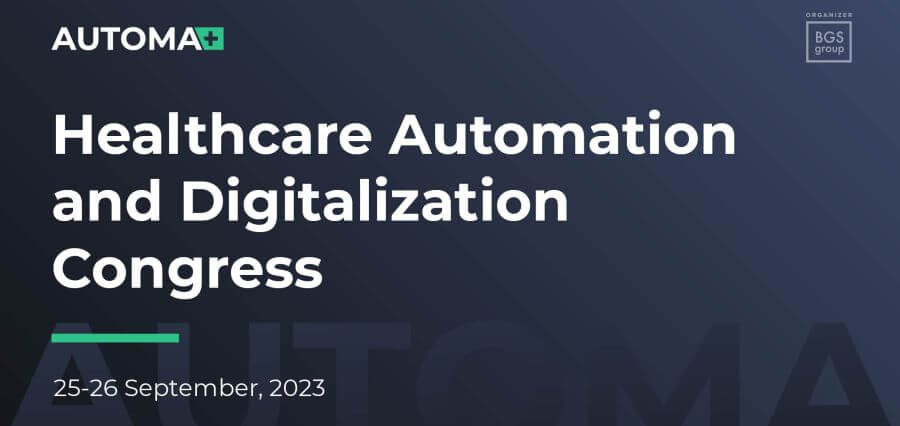Back in 2020, Google DeepMind AI unit published a study that claimed that artificial intelligence can detect breast cancer with greater accuracy, fewer false positives, and fewer false negatives than experts. Three years later, in 2023, the innovations in imaging AI technologies that promise endless possibilities in supporting physicians look less like something out of sci-fi, and more like everyday reality.
In this article, we will explore AI’s advancements in the diagnostics field, take a glimpse at the ongoing projects across Europe, and peer into the future of AI governance as developers, regulators, and policymakers chart the way for responsible and ethical utilisation of this technology.
Diagnostic Renaissance: Exploring the Full Potential of AI
Across Europe, several noteworthy AI healthcare projects are currently underway. In 2020, The Danish Centre for Clinical Artificial Intelligence (CAI-X) and the Department of Radiology at Odense University Hospital started their AI project called MAGIC – AI for breast cancer diagnostics. Today, the project is steadily reaching its end date of December 2023. MAGIC aims to improve patient outcomes by assessing 2 major points: the potential of AI in detecting clinically significant cancers, and the impact of deep learning-based workflow for cancer screening on Danish clinical practice.
Within CAI-X, it’s not the only project based on artificial intelligence. Other AI projects by CAI-X include PEACE (improved prediction of dysplasia in the cervix with AI), HjerteRo (identifying individuals with ischaemic heart disease), AICE (AI supported picture analysis in large bowel camera capsule endoscopy), and more.
Last year, Humanitas’ Cancer Centre and AI Centre announced the SYNTHEMA project that won a €7 million grant from the European Commission to develop new data analysis systems within the field of haematological diseases, fighting the critical issues of data scarcity and fragmentation. The project focuses on rare haematological diseases such as sickle cell anaemia and acute myeloid leukaemia and began in early 2023.
With the ever-increasing amount of AI projects currently in work, the safety, efficacy, and regulatory approval of AI diagnostics stand under close scrutiny. As we progress through research and development in AI technologies, it is essential to strike a balance between leveraging its benefits and addressing the associated challenges.
Balancing Benefits and Challenges in Healthcare Diagnostics
As we delve deeper into the integration of AI in healthcare, it becomes apparent that certain challenges must be carefully addressed.
One such challenge lies in the lack of transparency surrounding AI algorithms, making it difficult to fully comprehend how these systems arrive at their conclusions. Given the potential consequences at stake, accountability becomes a crucial factor, especially in the medical field where errors can have significant implications.
AI-based systems also raise concerns regarding data security and privacy. Patient data, comprising medical records, personal identification, and payment information, is subject to strict regulations such as GDPR and HIPAA. AI systems use a lot of data, which raises the risk of data leaks.
These challenges, along with others, necessitate a meticulous and thoughtful approach when implementing AI. The absence of standardised guidelines for the use of AI and ML in healthcare has become a growing concern.
Since April 2021, the European Commission has been working on the first EU regulatory framework for AI. Bringing this initiative one step closer to reality, Members of the European Parliament approved their negotiating stance on the AI Act — the first law on AI by a major regulator anywhere — on June 14, 2023. With this milestone achieved, discussions will now commence with EU countries in the Council, and the results remain to be seen.
The ultimate goal is to secure an agreement by the end of this year, as stakeholders seek to strike a balance between fostering innovation and ensuring ethical and responsible use of AI. As the talks progress, the final shape and scope of the EU’s AI regulatory framework will become clearer, potentially shaping the future of AI governance not only within the European Union but also serving as a global reference point.
In this era of unprecedented technological advancements, the responsible integration of AI in healthcare has the power to transform lives. The trajectory we choose today will shape the path to a better future for healthcare tomorrow.
The collective efforts of healthcare professionals, AI developers, regulatory bodies, and policymakers will be instrumental in building trust and harnessing the full potential of AI. The AUTOMA+ Healthcare Congress, taking place on September 25-26, 2023, in Zurich, Switzerland, serves as a platform for healthcare leaders to explore these frontiers of healthcare innovation. Join the specialists from Humanitas Research Hospital, Mater Hospital, Kantonsspital Aarau, Odense University Hospital, Idorsia Pharmaceuticals, GSK, Marengo Asia Hospitals, CERN and Bingli as they dive into the latest advancements in AI-driven drug discovery, generative AI in healthcare, and intelligent diagnostics during AUTOMA+ 2023 Session: The Full potential of AI and Robotics: https://sh.bgs.group/vt
| Read More Articles: Click Here |















